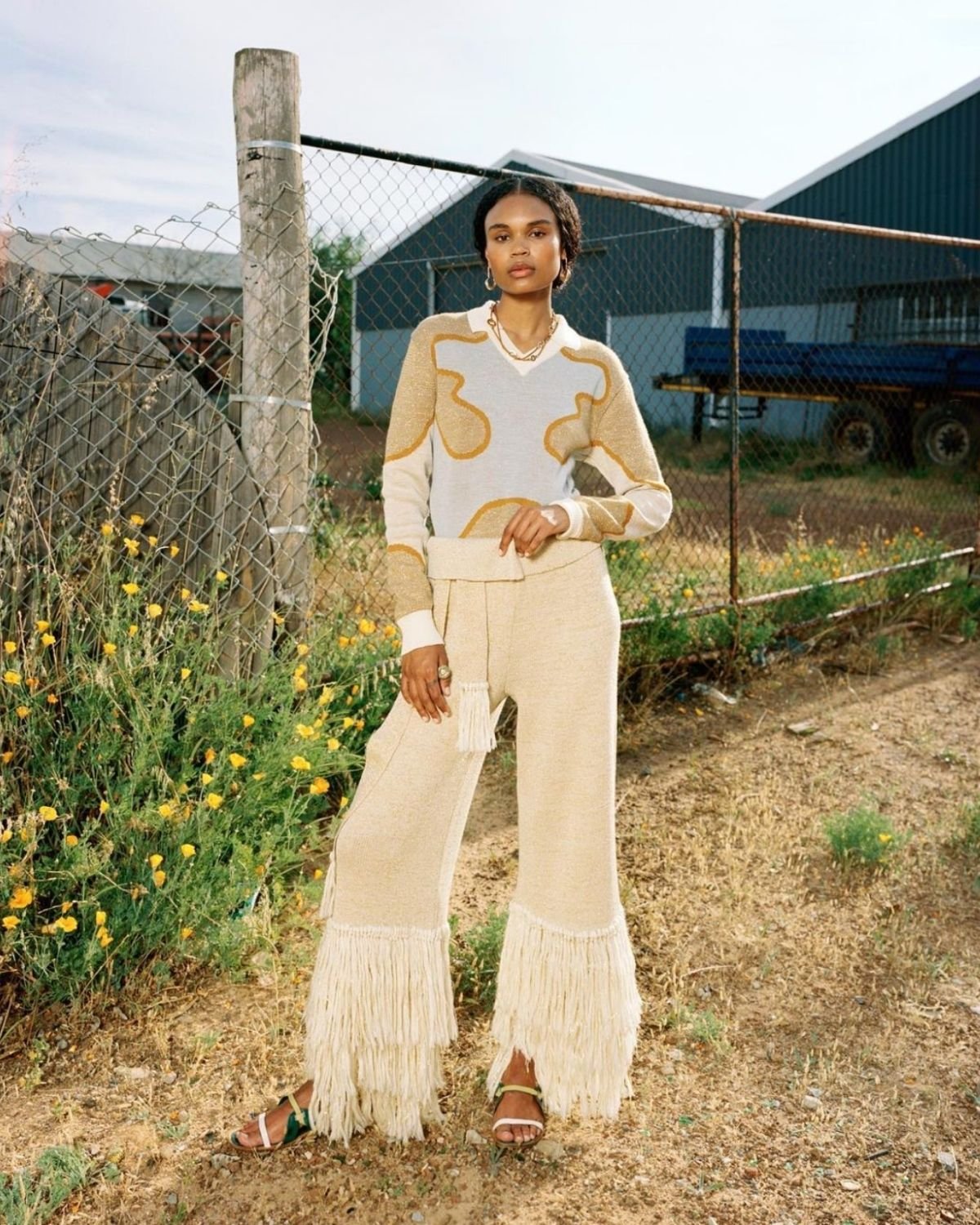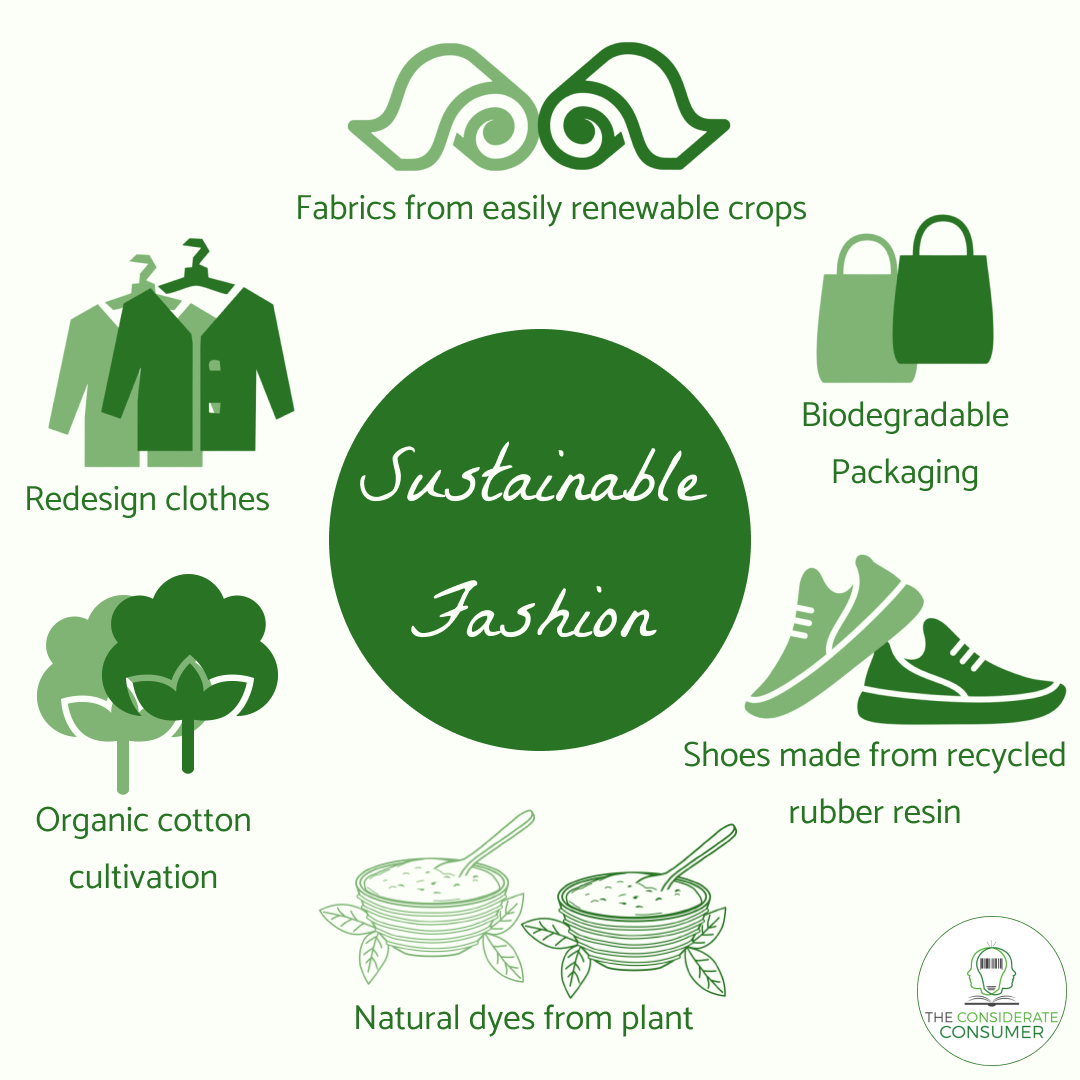Cape Town Sustainable Fashion: Honest Clothing for a Much Better Earth
Cape Town Sustainable Fashion: Honest Clothing for a Much Better Earth
Blog Article
Remain Ahead of the Contour by Checking Out Innovative Style Patterns
In a sector as vibrant as fashion, staying in advance includes even more than simply following current patterns-- it demands an exploration of innovation. The merging of modern technology and fashion proclaims a new era of customer engagement.

Welcoming Smart Textiles
Recently, the apparel industry has actually witnessed a transformative shift with the integration of clever fabrics, a cutting-edge development that mixes innovation with fabric. This evolution represents not only a blend of aesthetic appeals and performance yet also a substantial jump in the direction of sustainability and customization in style. Smart textiles, also referred to as e-textiles, installed innovative electronic devices such as sensing units and conductive strings within the fabric, enabling garments to interact with the environment or the user.
These fabrics are created to check physical criteria, such as heart rate or body temperature level, supplying real-time wellness analytics. Beyond health applications, wise textiles are likewise being utilized for flexible apparel, which can transform shade or pattern in response to ecological stimulations, thus offering a dynamic style experience.
Additionally, the growth of energy-harvesting textiles that produce power from movement or sunshine is paving the way for self-sufficient wearable modern technology. This technology is appealing to eco mindful customers and developers intending to lower the ecological footprint of style. As r & d in this area breakthrough, smart fabrics are anticipated to become progressively prevalent, reshaping the landscape of contemporary style with their multifunctional capabilities.
The Rise of 3D Printing
Reinventing the production landscape, 3D printing has actually become a game-changer in the fashion business. This advanced innovation has enabled designers to press the limits of creative thinking, generating intricate and tailored garments that were previously unthinkable. By leveraging electronic design and additive manufacturing, 3D printing promotes the development of complicated geometries and patterns, permitting designers to try out brand-new textures and structures.
A remarkable advantage of 3D printing in style is its capability to produce on-demand, minimizing waste and lowering inventory demands. This effectiveness not only optimizes manufacturing procedures however additionally enables quick prototyping, enabling developers to bring their visions to life in a much shorter duration. In addition, 3D printing sustains customization to a degree unequaled by typical techniques, using customized fits and one-of-a-kind layouts customized to private consumer choices.
The surge of 3D printing has actually likewise democratized fashion, making it available to arising developers who can now fabricate premium items without significant economic investment in traditional manufacturing facilities. As innovation remains to advance, the fashion sector is poised to harness the complete possibility of 3D printing, discovering new products and methods that will most certainly redefine exactly how style is developed and created.
Lasting Fashion Technologies
As the apparel industry comes to grips with journalism need for environmental duty, sustainable fashion advancements have arised at the leading edge of transformative adjustment. The expanding understanding of ecological impact has actually sustained a shift towards more eco-conscious methods and products. Developers and brands are currently focusing on sustainability, integrating approaches that minimize waste and decrease carbon footprints.
One considerable growth is the rise of round style, which stresses recycling and upcycling to prolong the lifecycle of garments. This strategy not just reduces waste yet likewise urges customers to take on a more conscious strategy to garments intake. Additionally, using lasting materials, such as organic cotton, hemp, and recycled polyester, has actually gotten grip. These materials require less water and power during manufacturing, considerably reducing ecological impact.
One more development depends on the fostering of ingenious dyeing techniques that make use of waterless processes or all-natural dyes, therefore minimizing the huge amounts of water and chemicals typically utilized in textile dyeing. Moreover, innovations in biotechnology have actually brought about the creation of lab-grown natural leather and fabrics, offering cruelty-free and eco-friendly choices to traditional products. Through these introducing efforts, the apparel industry is making significant strides towards a more lasting future.

Tech-Integrated Garments
Tech-integrated apparel represents an innovative blend of style and technology, improving how people engage with their clothes. This ingenious domain is noted by the addition of wise fabrics and ingrained digital elements, enhancing both functionality and visual allure. From fitness trackers installed in sportswear to warmed jackets controlled via mobile phone apps, tech-integrated garments provides customers extraordinary comfort and versatility.
Introducing brands are driving this pattern, concentrating on creating garments that react to environmental stimulations or user commands. For example, some garments can alter color or pattern in feedback to temperature level changes, while others integrate biometric sensing units to keep track of health and wellness metrics like heart price or stress and anxiety degrees. The smooth assimilation of technology into textiles likewise encompasses ecological sustainability, with efforts to establish self-cleaning fabrics or garments that adjust to climate condition, therefore decreasing the demand for numerous layers.
Furthermore, the arrival of wearable innovation is not simply restricted to garments however encompasses accessories like watches and eyewear, more expanding the Full Report scope of tech-integrated style. As the market continues to introduce, the potential for personalization and customization in clothing grows, providing consumers unique, tech-enhanced fashion experiences that satisfy their private requirements and choices.
Future of Virtual Style
In the last few years, the future of virtual fashion has emerged as a transformative pressure within the sector, leveraging advancements in digital technology to redefine how style is developed, experienced, and taken in. By incorporating increased fact (AR), virtual reality (VIRTUAL REALITY), and 3D style tools, designers can now craft interactive and immersive experiences that transcend typical style limits. Virtual style allows for the development of garments that exist exclusively in electronic environments, supplying countless opportunities for innovation without the limitations of physical production.
This electronic change not just offers possibilities for creative expression but also addresses sustainability issues fundamental in typical style techniques. Cape Town Sustainable Fashion. By eliminating the need for physical sources, digital style decreases waste and lessens carbon footprints. Additionally, the increase of virtual style straightens with the boosting customer demand for customized and one-of-a-kind experiences, as virtual garments can be customized and click over here customized to specific preferences with simplicity

Verdict
The style industry's future depend on the assimilation of ingenious technologies and sustainable techniques - Cape Town Sustainable Fashion. Smart textiles and tech-integrated clothing are boosting capability, while 3D printing provides opportunities for customization and waste decrease. Lasting fashion, via environment-friendly products and circular methods, demonstrates a commitment to ecological stewardship. Furthermore, digital style is positioned to redefine customer communications. Adapting to these trends is important for brand names seeking to remain affordable and appropriate in this rapidly advancing landscape.
In recent years, the style industry has actually witnessed a transformative change with the assimilation of wise fabrics, an innovative development that mixes modern technology with fabric.As the style market grapples Homepage with the pressing requirement for ecological duty, sustainable fashion developments have actually arised at the center of transformative change.In recent years, the future of online style has actually emerged as a transformative force within the industry, leveraging innovations in digital innovation to redefine just how fashion is produced, experienced, and consumed. The increase of online style aligns with the raising consumer need for special and tailored experiences, as virtual garments can be tailored and customized to private preferences with simplicity.
The fashion market's future lies in the combination of cutting-edge modern technologies and lasting techniques.
Report this page